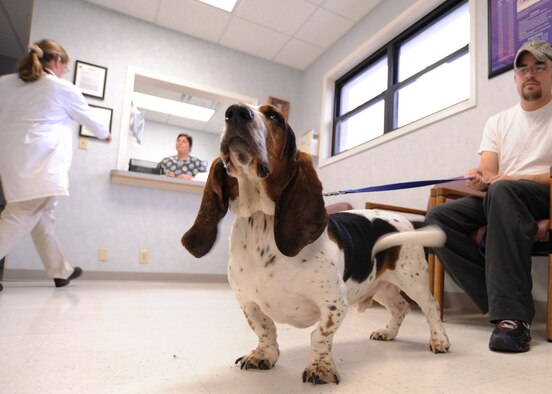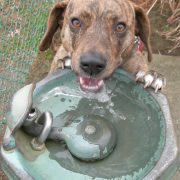Soreness Post-Adjustment, Normal or Not?

Do dogs get sore after an adjustment? This is a question we get frequently in our practice, and it is a good one. After all, many people associate chiropractic with violent twisting and loud pops. This aggressive adjustment style may be the norm when it comes to humans, but it is not for animals. In fact, in animals popping sounds are extremely rare and the adjustment is so gentle you may miss it if you blink. However, an animal may experience a few down days after an adjustment. Why is this?
Can an adjustment lead to soreness?
While adjustments don’t typically cause pain, they can lead to soreness in a pet. This is similar in nature to what you experience the first few times you visit a gym. If you haven’t worked out in four years then bench press and squat for 45 minutes, you are going to be sore for a number of days afterwards. In fact, you may find yourself struggling to sit in your chair at work or lift your arms to put the dishes away at home. Is this a sign of a problem though? It typically is not. Rather, it is a sign of healing. Unfortunately, it takes your body time to repair the work you did in the gym and you will be sore in the meantime.
 How long might soreness last?
How long might soreness last?
In many animals, they won’t experience any soreness whatsoever. In other pets, they may look worse for a day or two immediately after an adjustment. Every animal behaves differently. However, our experience has shown that typically it does not last beyond 2-3 days. What are the results after this period of discomfort? We are often told that pets look better than they have in years once the body has had time to heal. This is because animal chiropractic is a natural treatment that depends on the body’s ability to heal itself. The faster the pet’s body can recover, the quicker they will improve.
Are there any remedies that may help?
To begin with, you can always ice the tender area on your pet. It is no different than the protocol you might use for your knee or ankle. Icing for 10-20 minutes (if your pet allows for it) can definitely help. In addition, you can utilize a homeopathic called arnica to help with any painful spots. Arnica can be found in an ointment form that can be spread directly onto the skin, or in supplement form that can be taken internally. It helps bruising, swelling, arthritis, and provides pain relief while your pet is on the mend.
In the end, pet owners want what is best for their pet. A couple days of discomfort after an adjustment can be worrisome. However, this is just part of the body’s natural healing process – much like recovering from a workout in the gym. Additionally, it typically doesn’t last long and is followed by a very happy pet!











Leave a Reply
Want to join the discussion?Feel free to contribute!